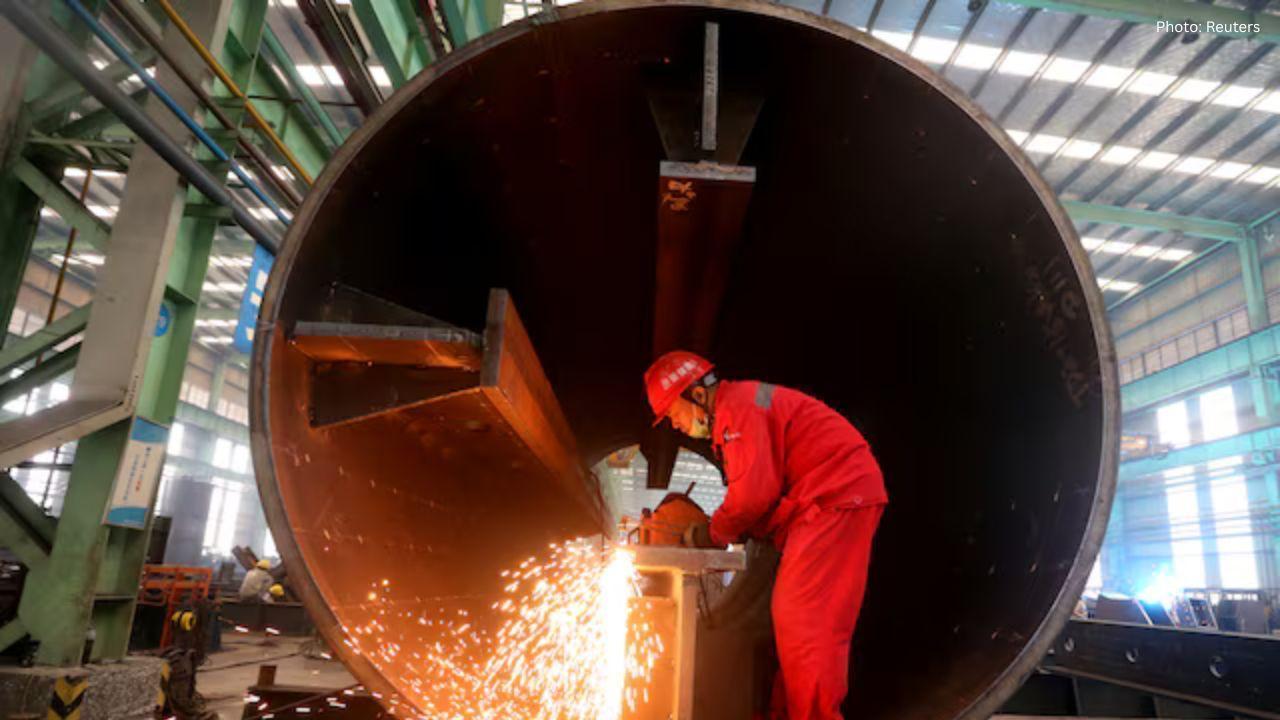You have not yet added any article to your bookmarks!

Join 10k+ people to get notified about new posts, news and tips.
Do not worry we don't spam!

Post by : Anis Farhan
Vietnam is emerging as a powerhouse in Asia’s technology sector. Over the past decade, the country has invested heavily in education, infrastructure, and digital policy, producing a workforce capable of meeting global IT demands. With a young, tech-savvy population, Vietnam is increasingly becoming a destination for software development, fintech, and emerging technologies such as artificial intelligence (AI) and blockchain.
The government’s proactive policies, combined with foreign investment and startup growth, have created a thriving ecosystem. Vietnam’s tech workforce is now recognized not just regionally but globally as a key driver of digital innovation.
One of Vietnam’s strongest advantages is its focus on STEM education. Universities and technical institutes prioritize computer science, software engineering, and data analytics, producing graduates fluent in programming languages, AI concepts, and cloud computing.
Scholarships, coding bootcamps, and international collaborations further enhance skills, while government-backed programs encourage tech entrepreneurship. English proficiency is emphasized in curricula, making Vietnamese IT professionals competitive in the global market.
Vietnam’s tech workforce is concentrated in major cities such as Hanoi, Ho Chi Minh City, and Da Nang. These hubs host a combination of multinational companies, local startups, and outsourcing firms.
Software Outsourcing: Vietnam is increasingly recognized as an alternative to India and the Philippines for outsourcing software development. Cost-effective talent, strong technical skills, and cultural adaptability make it attractive for global clients.
Startups and Innovation: Cities like Ho Chi Minh City foster vibrant startup ecosystems, particularly in fintech, e-commerce, and SaaS platforms. Local talent drives innovation, leveraging technology to solve domestic and international market needs.
Corporate Tech Centers: Global firms such as Microsoft, Samsung, and Intel maintain R&D centers in Vietnam, providing employment for highly skilled professionals and facilitating knowledge transfer.
Vietnamese tech professionals are not just coding—they are innovating. Key areas of expertise include:
Artificial Intelligence (AI): AI research and applications are growing rapidly, with Vietnamese engineers contributing to computer vision, natural language processing, and predictive analytics.
Blockchain: Vietnam has become a hub for blockchain startups, cryptocurrency platforms, and decentralized finance solutions. Government interest in digital currency and blockchain adoption further stimulates talent development.
Cybersecurity: As digital adoption grows, so does the demand for cybersecurity expertise. Vietnamese professionals increasingly manage global data security projects, compliance solutions, and threat analysis.
This specialization positions Vietnam as a serious competitor in Asia’s IT landscape.
Vietnam’s government plays an active role in shaping the IT sector:
National Digital Transformation Program: Launched to modernize digital infrastructure and promote tech adoption across industries.
Tax Incentives and Startup Support: Incentives attract foreign investors and nurture local tech entrepreneurship.
Skill Development Initiatives: Programs targeting coding, AI, and blockchain education ensure the workforce remains competitive and globally relevant.
These policies create an environment where tech talent can thrive, aligning education, industry, and policy objectives.
Despite rapid growth, certain advanced fields, such as AI research and cloud architecture, face talent shortages. Companies often compete fiercely to hire experienced professionals, driving wages up and creating retention challenges.
Some highly skilled professionals seek opportunities abroad, attracted by higher salaries and exposure to global projects. Retaining this talent is critical for sustaining Vietnam’s competitive edge.
While urban centers boast modern tech infrastructure, rural areas lag behind. Expanding connectivity, cloud services, and digital access nationwide remains a long-term challenge.
Emerging technologies such as blockchain and fintech sometimes face regulatory uncertainty. Balancing innovation with compliance is essential to prevent stifling the sector.
Vietnam’s tech workforce can be compared with other major Asian IT players:
India: Offers scale, experience, and global outsourcing dominance but at higher labor costs.
Philippines: Strengths lie in customer service and BPO, less in advanced technology.
China: Leads in AI and manufacturing tech but is less cost-competitive for outsourcing.
Vietnam: Combines affordability, technical skills, and adaptability, making it an attractive middle ground for foreign investment.
Vietnam’s position as a rising IT hub relies on a balance of quality, cost-effectiveness, and innovation potential.
International investors are increasingly turning to Vietnam for technology projects. Venture capital funding for local startups has surged, particularly in AI, fintech, and e-commerce. Multinational corporations continue to establish R&D centers and development hubs, ensuring knowledge transfer and global exposure for Vietnamese professionals.
Vietnam’s participation in regional tech forums, partnerships with universities abroad, and collaboration with multinational firms further solidifies its reputation as a rising IT powerhouse.
Looking ahead, Vietnam’s IT sector is expected to grow substantially over the next decade:
Expansion in AI and Robotics: Advanced technology adoption across industries will increase demand for highly skilled professionals.
Global Outsourcing Hub: Vietnam will continue to attract outsourcing contracts from global clients seeking quality at competitive costs.
Startup Ecosystem Maturity: A stronger ecosystem of accelerators, incubators, and investment will produce scalable tech companies.
Talent Development Programs: Continuous training, international collaborations, and digital literacy initiatives will ensure a steady supply of skilled professionals.
If current trends continue, Vietnam may soon rival larger economies in Asia in producing both quantity and quality of tech talent.
This article is for informational purposes only. It provides insights into Vietnam’s IT workforce and technology sector trends and does not constitute investment or employment advice. Readers should consult official reports or industry experts for detailed guidance.










Ashes Failure Puts Brendon McCullum Under Growing England Pressure
England’s Ashes loss has sparked questions over Bazball, as ECB officials review Test failures and B

Kim Jong Un Celebrates New Year in Pyongyang with Daughter Ju Ae
Kim Jong Un celebrates New Year in Pyongyang with fireworks, patriotic shows, and his daughter Ju Ae

Dhurandhar Day 27 Box Office: Ranveer Singh’s Spy Thriller Soars Big
Dhurandhar earns ₹1117 crore worldwide by day 27, becoming one of 2026’s biggest hits. Ranveer Singh

Hong Kong Welcomes 2026 Without Fireworks After Deadly Fire
Hong Kong rang in 2026 without fireworks for the first time in years, choosing light shows and music

Ranveer Singh’s Dhurandhar Hits ₹1000 Cr Despite Gulf Ban Loss
Dhurandhar crosses ₹1000 crore globally but loses $10M as Gulf nations ban the film. Fans in holiday

China Claims India-Pakistan Peace Role Amid India’s Firm Denial
China claims to have mediated peace between India and Pakistan, but India rejects third-party involv